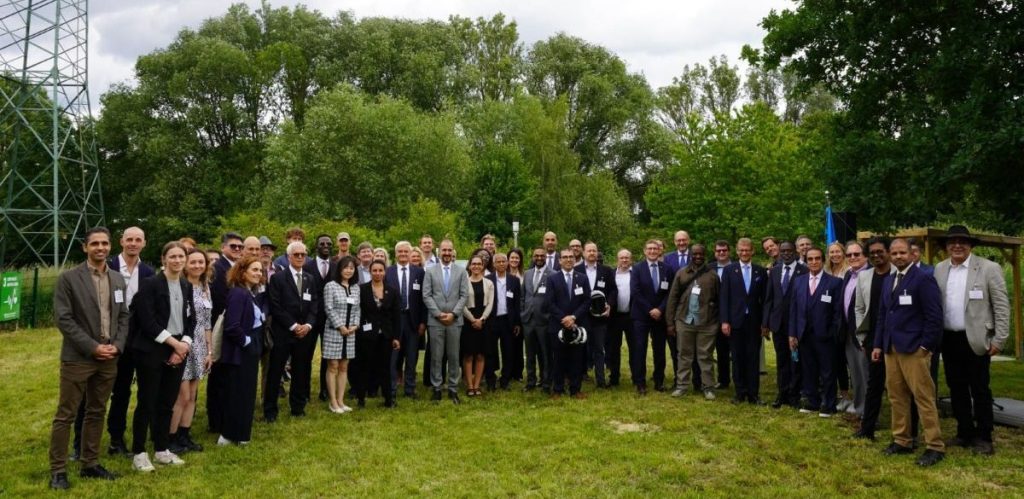
The inaugural Annual Meeting of the United Nations University (UNU) Hubs was held at Hamburg University of Technology (TUHH) from June 5–6, 2025. A milestone event, it set the stage for enhanced research collaboration across UNU Hub institutions. It brought together representatives from the four active UNU Hubs- Calgary (Canada), TUHH (Germany), City College of New York (CCNY) (USA), and Lund University (Sweden) as well as delegates from the forthcoming hubs at the University of Pretoria (South Africa) and the University of Toronto (Canada), fostering a growing network of academic collaboration focused on sustainability, innovation, and global impact.
The UNU Hub at City College of New York (CCNY)-Remote-Sensing and Sustainable Innovations for Resilient Urban Systems (R-SIRUS) was notably represented at the meeting by R-SIRUS Executive Co-Director and Dean of the Grove School of Engineering (GSOE), Alexander Couzis and R-SIRUS Executive Co-Director and NOAA Chair and Professor at GSOE, Dr. Reza Khanbilvardi, R-SIRUS Deputy Director, Dr. Karin Sjöstrand, and CCNY Faculty, Professors Mitch Goldberg, Naresh Devineni, Prathap Ramamurthy.
The primary goals of the meeting were to advance the integration of science, policy, and society, and to develop sustainable technological solutions to address today’s most urgent global challenges including climate change, food and water security, and equitable development. It opened with introductions from each UNU Hub, where representatives shared their mission, research priorities, and strategic goals to lay the foundation for long term collaboration.
Further, keynote speakers addressed the participants on crucial topics; UNU Rector Prof. Tshilidzi Marwala discussed the UNU’s unique role in connecting scientific research with policy impact while industry leaders and experts including Nicole Dreyer-Langlet (AIRBUS), Franziska Meinzinger (Hamburg WASSER), Prof. Stefan Palzer (Nestlé), and Prof. Björn Stevens (Max Planck Institute) offered insights on sustainability in aviation, water management, food systems, and climate-informed engineering.
A major highlight of the event was the inauguration of the Campus LAB Circular Economy and the Global Soil Health, Water, and Climate Field Lab at TUHH, showcasing applied research platforms with high potential for inter-Hub collaboration. The meeting also hosted thematic workshops led by UNU Institute for Water, Environment and Health (INWEH), which engaged participants in exploring regional and disciplinary intersections across water, environment, and health. These sessions focused on identifying new collaborative opportunities, addressing systemic barriers, and co-developing sustainable development goals aligned strategic roadmaps. Participants emphasized the need for shared digital platforms, expanded funding opportunities for joint initiatives, and robust faculty and student exchange programs to sustain and deepen the global UNU Hub network.
This meeting was vital toward creating a globally connected research and policy network. It underlined the importance of cross-regional dialogue and interdisciplinary collaboration in addressing complex global challenges. Dr. Reza Khanbilvardi expressed R-SIRUS’s commitment to advancing the outcomes of the meeting, “R-SIRUS will initiate collaborations with other UNU hubs, engage with stakeholders to operationalize research outputs into policy recommendations, and contribute to a shared knowledge platform that promotes real time exchange of best practices and innovations.”